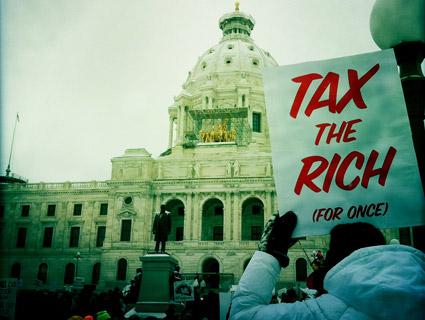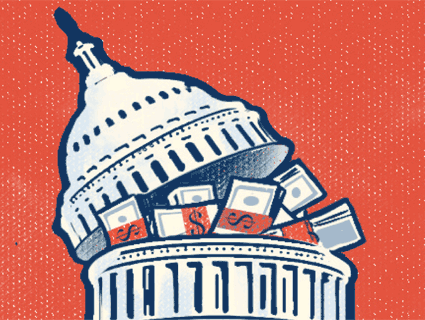
<a href="http://www.shutterstock.com">Africa Studio</a>/Shutterstock
Not to be outdone by the pack of millionaires who swept through the nation’s capital this week demanding higher taxes on the rich, two groups of business leaders are asking lawmakers for the same—because they didn’t build that.
The American Sustainable Business Council and Business for Shared Prosperity, which represent hundreds of thousands of entrepreneurs, investors, and managers—people John Boehner had claimed would be hurt by higher individual tax rates—made their case to Congress in a letter. They are urging Congress to let the Bush tax cuts expire on incomes exceeding $250,000 and to “put that money toward programs that help the economy and business.”
Signed by some 600 business owners and executives, the letter explains that it’s not pretty when you starve the beast:
The large and growing budget cuts approved by Congress and supported by the President have had a severe impact on business, particularly micro and small business and job creation—reducing funding for infrastructure improvements, community economic development programs, housing, job training, and much more. America’s failing infrastructure is starved of funds and falling further behind our global competitors’. These cuts have hurt America’s small- and medium-sized businesses and our communities.
One of the signatories, Rhiza Labs‘ president and CEO Josh Knauer, piled on in a statement: “My business would be hurt far more by allowing the tax cuts for America’s most fortunate to continue and instead slashing budgets for things like public education, research and infrastructure to pay for them.”
For historical evidence of trickle-down #fail, one need only look to the six years between the 2001 Bush tax cuts and the Great Recession—employment grew just 4.8 percent during that period, versus 16.2 percent in the six years following President Clinton’s 1993 tax hike.
The groups also slam the GOP for making specious arguments on their behalf: “Those who claim that tax cuts help small businesses are guilty of identity theft.” A recent Treasury analysis found that only 2.5 percent of small-business owners would pay more if the Bush tax cuts expired on high earners. And as my colleague Adam Weinstein recently pointed out, that 2.5 percent includes quite a few wealthy executives and investment firms.
“Wall Street wheelers and dealers would get no sympathy saying that ending the high-income Bush tax cuts would hurt them,” Camille Moran, a Louisiana small-business owner and signatory to the letter, said in a statement. “So instead they pretend it would hurt Main Street small business and employment. Don’t fall for it.”













